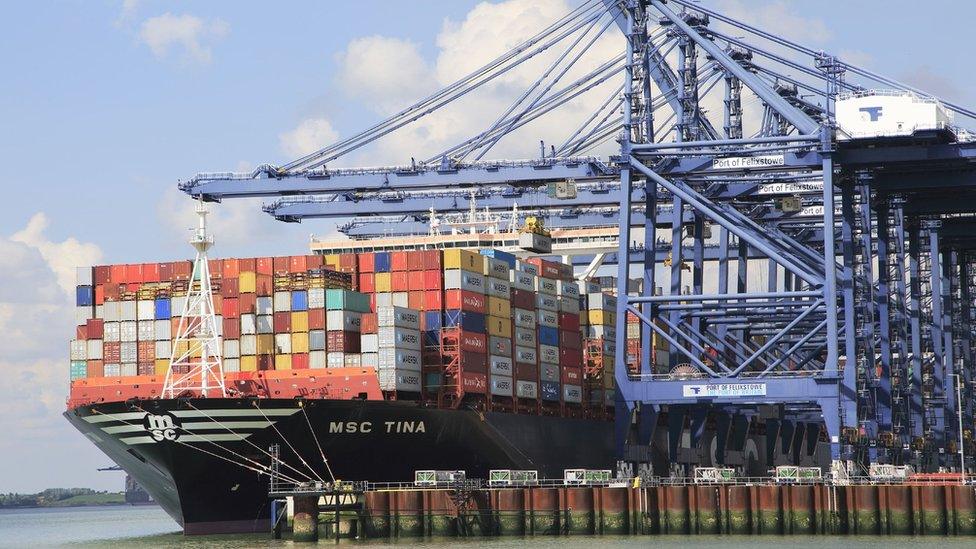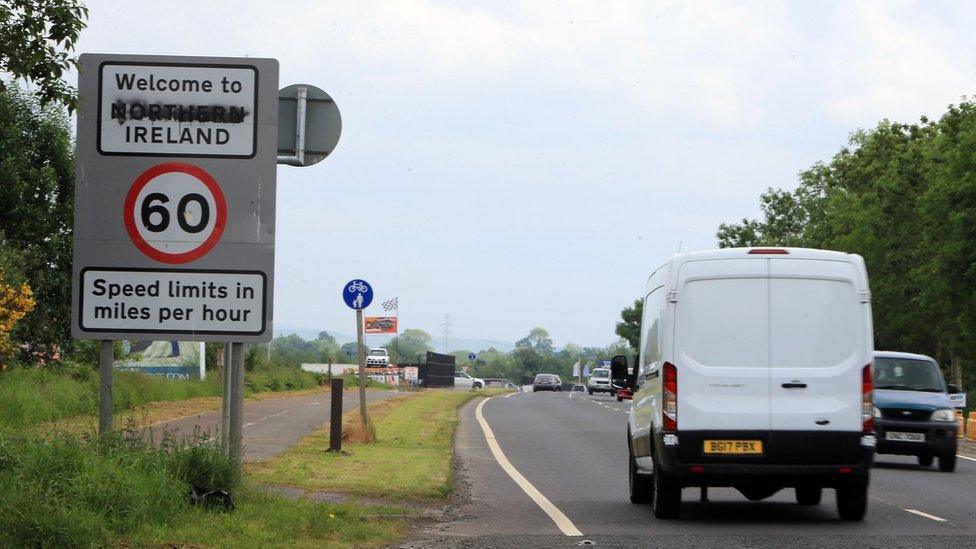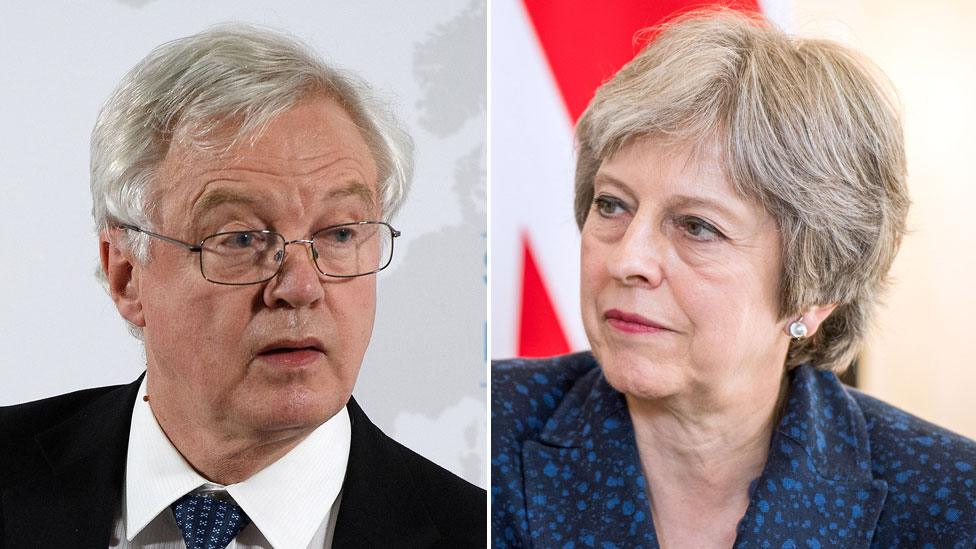EU and trade: the three big questions yet to be answered
- Published
- comments

The European Union is the destination for £240bn worth of exports from the UK every year.
That's equivalent to about 12% of the total value of the UK economy, so our trading relationship with the rest of the continent matters.
Supply chains supporting huge industrial sectors such as car production, food distribution and pharmaceuticals rely on frictionless borders between Britain and the rest of the EU.
Many firms warn that any unplanned disruption to such arrangements would damage the economy - and that means jobs and our own personal incomes.
This is why politicians are expending so much effort putting together proposals to make the UK's planned departure from the EU as "frictionless" as possible when it comes to trade.
On Thursday the government came up with its latest plan for that trading relationship focused on the need to keep the border between Northern Ireland and the Republic free of any checks.
That has been a key part of the UK/EU Brexit negotiations, as a completely open border is seen as the only way to maintain the Good Friday peace agreement signed between the UK and Ireland in 1998.
Brexit: The government's customs options
Brexit: Key dates and potential hurdles
At its simplest, the government's proposals on Thursday commit the UK to remaining within the EU's customs union for a "temporary period" if no other solutions are operable by December 2020, when the Brexit "implementation" period comes to an end.
That would mean goods would be able to travel freely between Northern Ireland and the Republic, as they do now, and between Britain and rest of the EU.

Traffic cross between Northern Ireland and the Irish Republic in County Donegal
However, the free movement of goods is only one part of an open border even if the EU were to agree to the UK's latest plan - and that it is a very significant "if".
There are three others:
First, as the government's document makes clear, upholding the Good Friday agreement "requires a joint solution on both customs and an approach on regulatory standards, which will also need to be addressed".
Agreement on regulations - for example on the safety standards of food - are as vital a part of any free trade deal as agreement on goods. Otherwise what are known as "non-tariff barriers" to trade (different regulations between Britain and the EU) will soon develop between the two sides.
The second major issue still to be answered, according to my sources, is "arbitration": which authority deals with disputes?
The European Court of Justice is the ultimate arbiter across the EU - a position the UK government has said is unacceptable once Britain has left the union. What might replace it is no clearer today, officials say.
Third is the "level playing field".
The EU has made it clear it will not agree to any Brexit deal that could allow Britain to undercut the rest of Europe on issues such as state aid for businesses (which the EU allows only under specific circumstances).
It now seems unlikely that the government will bring forward any further proposals on trading relationships with the EU before the next European Council summit of EU leaders at the end of June.
That means the answers to these three questions - as vital to the trading relationship with the EU as any "deal" on goods - are still in the bulging folder marked "unresolved".
- Published7 June 2018
